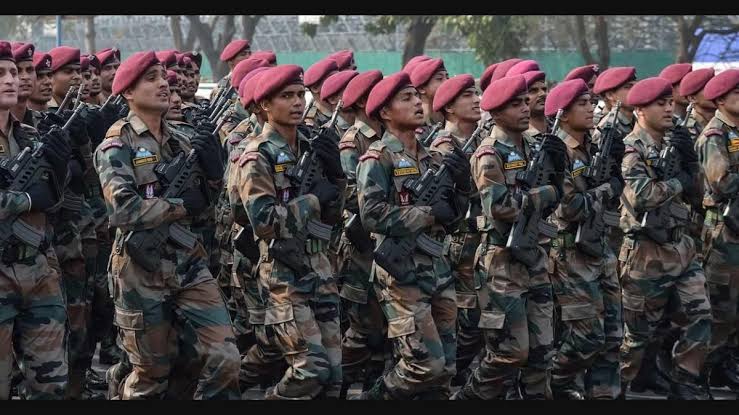India Advances Towards Unified Theatre Commands with Inter-Services Organisations Act

New Delhi, 11th May 2024: In a significant move aimed at reshaping India’s military architecture, the government has officially enacted the Inter-Services Organisations (Command, Control, and Discipline) Act. This legislation, which received Presidential assent on August 15 last year following its passage in Parliament during the monsoon session, marks a pivotal step towards establishing unified theatre commands, heralding the most radical military reorganisation since Independence.
The immediate enforcement of the ISO Act aligns with the BJP’s manifesto commitment to establish military theatre commands for enhanced operational efficiency, a promise reiterated after the creation of the chief of defence staff (CDS) post in December 2019.
Concurrently, CDS General Anil Chauhan chaired a “Parivartan Chintan” session, spanning Thursday and Friday, during which 12 sub-committees presented on various domains and aspects pertaining to jointness and integration. This initiative, conducted in anticipation of imminent theatreisation, signifies a proactive approach towards transforming India’s military structure.
The groundwork for integrated theatre commands (ITCs) is now underway, reviving momentum that had stalled following the tragic demise of the first CDS, Gen Bipin Rawat, in a helicopter crash in December 2021. Persistent inter-service turf wars have posed challenges to this transformative endeavour.
India’s military requires a streamlined and cost-effective war-fighting apparatus, a need that the ITCs aim to address by replacing the existing 17 single-service commands (comprising 7 Army, 7 IAF, and 3 Navy commands), which often operate independently without adequate synergy in planning, logistics, and operations.
The ISO Act empowers military commanders of existing tri-service organisations with comprehensive administrative and disciplinary authority over Army, Navy, and IAF personnel under their purview. This empowerment is achieved while respecting the distinct service conditions of each branch, as previously governed by separate service acts.
Furthermore, the ISO Act facilitates the establishment of the proposed ITCs by providing the necessary command and control framework. The current blueprint envisions two adversary-specific ITCs: one for the northern borders with China, headquartered in Lucknow, and another for the western front with Pakistan, based in Jaipur.
In a statement released on Friday, the Ministry of Defence affirmed, “The Act will empower the heads of ISOs and pave the way for expeditious disposal of cases, avoid multiple proceedings, and will be a step towards greater integration and jointness among armed forces personnel.”








